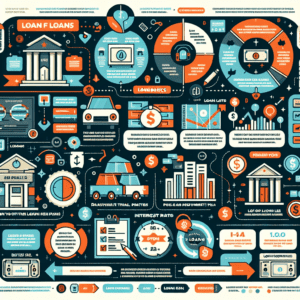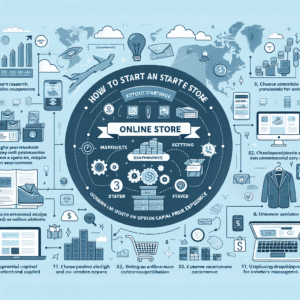“Print Money with AI: Harnessing AI to Create and Sell Digital Products Effortlessly!”
**AI-Powered Automation: How Entrepreneurs Are Using AI to Print Money Online**
The rise of artificial intelligence has transformed the way entrepreneurs create and sell digital products, enabling them to automate processes that once required significant time and expertise. By leveraging AI-powered tools, individuals can now generate high-quality content, design digital assets, and streamline business operations with minimal effort. This shift has opened up new opportunities for those looking to build online businesses, allowing them to scale their ventures efficiently while reducing costs. As AI continues to evolve, more entrepreneurs are discovering innovative ways to harness its capabilities to generate revenue in the digital marketplace.
One of the most significant advantages of AI-powered automation is its ability to create digital products quickly and efficiently. For instance, AI-driven design tools can generate professional-quality graphics, templates, and branding materials in a fraction of the time it would take a human designer. Entrepreneurs who sell digital assets such as social media templates, e-books, and printables can use AI to streamline the design process, ensuring that they can produce and market their products at a much faster rate. This automation not only saves time but also allows business owners to focus on other aspects of their operations, such as marketing and customer engagement.
In addition to design, AI is also revolutionizing content creation. Writers and marketers are increasingly using AI-powered writing assistants to generate blog posts, product descriptions, and even entire e-books. These tools analyze vast amounts of data to produce well-structured and engaging content, significantly reducing the time required for research and writing. Entrepreneurs who sell digital courses, guides, or subscription-based content can leverage AI to enhance their offerings, ensuring that they consistently provide valuable and relevant information to their audience. Furthermore, AI-driven language models can assist in translating content into multiple languages, allowing businesses to reach a global audience with ease.
Beyond content creation, AI is also playing a crucial role in automating customer interactions and business operations. Chatbots and virtual assistants powered by AI can handle customer inquiries, process orders, and provide personalized recommendations, improving the overall customer experience. This level of automation enables entrepreneurs to manage their businesses more efficiently, reducing the need for manual intervention and allowing them to focus on scaling their operations. Additionally, AI-driven analytics tools can provide valuable insights into customer behavior, helping business owners make data-driven decisions to optimize their sales strategies.
Another area where AI is making a significant impact is in the creation of AI-generated art and music. With the help of machine learning algorithms, entrepreneurs can produce unique digital artwork, stock images, and even music tracks that can be sold as standalone products or incorporated into other digital offerings. This has led to the emergence of new business models, where individuals can monetize AI-generated content without requiring extensive artistic or musical expertise. As AI technology continues to improve, the quality and originality of these creations are expected to become even more sophisticated, further expanding the possibilities for digital entrepreneurs.
Ultimately, AI-powered automation is reshaping the digital marketplace, providing entrepreneurs with the tools they need to create, market, and sell products more efficiently than ever before. By embracing AI-driven solutions, business owners can streamline their workflows, enhance their offerings, and reach a broader audience, all while minimizing costs and maximizing profitability. As technology continues to advance, the potential for AI to revolutionize online entrepreneurship will only continue to grow, making it an essential tool for those looking to succeed in the digital economy.
**From Idea to Income: Leveraging AI to Create and Sell Digital Products**

Artificial intelligence has revolutionized the way people create and sell digital products, offering unprecedented opportunities for entrepreneurs and content creators. By leveraging AI-powered tools, individuals can streamline the production process, enhance creativity, and generate income with minimal upfront investment. As AI continues to evolve, it is becoming an essential resource for those looking to monetize their skills and ideas in the digital marketplace.
One of the most significant advantages of AI in digital product creation is its ability to automate complex tasks. For instance, AI-driven design tools enable users to generate high-quality graphics, logos, and illustrations without requiring advanced artistic skills. Platforms like Canva and Adobe Firefly use AI to assist in creating visually appealing content, making it easier for entrepreneurs to develop digital assets such as social media templates, e-books, and printables. This automation not only saves time but also allows creators to focus on refining their ideas and marketing their products effectively.
Beyond design, AI is also transforming the way written content is produced. With the rise of natural language processing models like ChatGPT and Jasper AI, individuals can generate blog posts, e-books, and sales copy with remarkable efficiency. These tools help streamline the writing process by providing suggestions, improving grammar, and even generating entire pieces of content based on user input. As a result, aspiring authors and content creators can produce high-quality digital products without the need for extensive writing experience.
Moreover, AI-powered tools are enhancing the development of online courses and educational materials. Platforms such as Synthesia and Descript allow users to create video content with AI-generated voiceovers and realistic avatars, eliminating the need for expensive recording equipment or professional voice actors. This innovation makes it easier for educators and entrepreneurs to package their knowledge into digital courses, which can then be sold on platforms like Udemy, Teachable, or Gumroad. By leveraging AI, course creators can produce engaging and professional-looking content that appeals to a wider audience.
In addition to content creation, AI is also playing a crucial role in optimizing digital product sales. AI-driven analytics tools help entrepreneurs understand customer behavior, identify trends, and refine their marketing strategies. For example, AI-powered chatbots and recommendation engines can enhance customer interactions by providing personalized product suggestions and answering inquiries in real time. These advancements improve the overall shopping experience, increasing the likelihood of conversions and repeat purchases.
Furthermore, AI is enabling the automation of business operations, allowing digital product sellers to scale their ventures more efficiently. Tools like Zapier and Make integrate AI-driven workflows, automating tasks such as email marketing, order processing, and customer support. By reducing manual workload, entrepreneurs can focus on expanding their product offerings and reaching a broader audience.
As AI technology continues to advance, the potential for creating and selling digital products will only grow. However, while AI provides powerful tools for automation and efficiency, success in the digital marketplace still requires creativity, strategic planning, and a deep understanding of customer needs. Those who can effectively combine AI-driven solutions with innovative ideas will be well-positioned to thrive in this evolving landscape. By embracing AI, entrepreneurs can transform their ideas into profitable digital products, opening new avenues for financial success in the digital economy.
**The Future of Passive Income: How AI is Revolutionizing Digital Product Sales**
Artificial intelligence is transforming the way people create, market, and sell digital products, making passive income more accessible than ever before. As AI-powered tools become increasingly sophisticated, entrepreneurs and content creators are leveraging these technologies to streamline their workflows, reduce production costs, and maximize profits. This shift is not only democratizing digital commerce but also redefining the traditional concept of passive income by enabling individuals to generate revenue with minimal ongoing effort.
One of the most significant ways AI is revolutionizing digital product sales is through content generation. AI-driven platforms can now produce high-quality written content, design graphics, and even generate music or videos with little to no human intervention. For instance, AI-powered writing assistants can create e-books, blog posts, and marketing copy in a fraction of the time it would take a human writer. Similarly, AI-driven design tools allow users to generate logos, social media templates, and digital artwork without requiring advanced design skills. This automation not only accelerates the production process but also reduces the need for expensive professional services, making digital product creation more accessible to a wider audience.
Beyond content creation, AI is also enhancing the way digital products are marketed and sold. Machine learning algorithms can analyze consumer behavior, predict trends, and optimize pricing strategies to maximize sales. AI-powered chatbots and virtual assistants provide personalized customer support, improving user experience and increasing conversion rates. Additionally, AI-driven advertising platforms enable sellers to target specific audiences with precision, ensuring that their digital products reach the right customers at the right time. These advancements allow entrepreneurs to automate much of the sales process, making passive income more attainable.
Another area where AI is making a significant impact is in the personalization of digital products. Consumers increasingly expect customized experiences, and AI enables sellers to meet this demand efficiently. For example, AI can generate personalized learning materials based on a student’s progress, create tailored workout plans for fitness enthusiasts, or develop unique digital art based on user preferences. This level of customization not only enhances customer satisfaction but also increases the perceived value of digital products, leading to higher sales and greater profitability.
Moreover, AI is streamlining the management of digital product businesses by automating administrative tasks. From inventory management to customer relationship management, AI-powered tools can handle repetitive processes, allowing entrepreneurs to focus on strategic growth. Automated financial tracking and reporting systems help sellers monitor revenue, expenses, and profitability with minimal effort. By reducing the time and resources required to manage a digital business, AI enables individuals to scale their operations more efficiently and generate passive income with greater ease.
Despite these advantages, the rise of AI in digital product sales also presents challenges. As AI-generated content becomes more prevalent, competition in the digital marketplace is intensifying. Sellers must find ways to differentiate their products and provide unique value to customers. Additionally, ethical concerns surrounding AI-generated content, such as copyright issues and authenticity, must be carefully navigated. However, those who embrace AI responsibly and strategically can leverage its capabilities to create innovative digital products and establish sustainable passive income streams.
As AI continues to evolve, its role in digital commerce will only expand, offering new opportunities for entrepreneurs and content creators. By harnessing AI’s potential, individuals can automate key aspects of digital product creation, marketing, and sales, making passive income more achievable than ever before. While challenges remain, the benefits of AI-driven digital product sales far outweigh the drawbacks, signaling a promising future for those willing to adapt to this technological revolution.
















